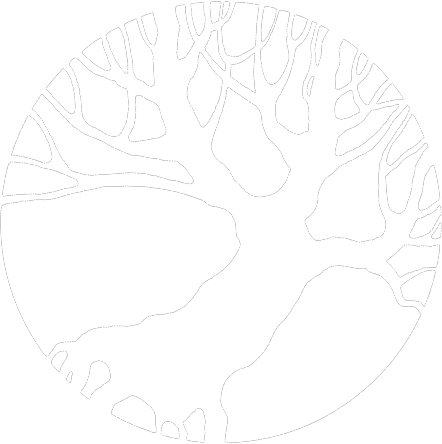Peeling Onions with Ahmed
Our Playwright Around the House, Ahmed Moneka, has been hard at work on his newest project, The Onion Cellar; a collectively-created, world-fusion musical celebrating openness, storytelling, and community. In fact, not even a few weeks ago, he was conducting a second round of interviews with his incredible team of artists! To learn more about Ahmed’s work on The Onion Cellar, check out his Q&A session with our Intern Artistic Director, Caitie Graham.
The Interview
CAITIE: The Onion Cellar is probably the most epic project I’ve ever had the privilege of being a part of. It’s ambitious in so many ways; in its devised development process, in the breadth of stories it seeks to link, its musical nature, and what it aims to offer its audience. The possibility inherent to this concept is almost infinite, which to me is – at this stage in the process – simultaneously the most exciting and most challenging thing about it.
What – in your mind – is the most exciting part of this project (if you can choose)? And what is the most challenging?
AHMED: In my opinion, holding space means creating an environment where people can be honest and true to themselves without feeling the need to conform or deceive others. It’s about sharing your feelings openly with others, as this helps build trust and promotes healing. As the saying goes, ‘We live together, but we die alone.’The challenging part is the story and the style of delivering it. The characters are all very different yet similar. Thinking about the rules of the play, it’s not a musical, it’s a play with music. I want to draw strength from the actors. Some are poets, dancers, actors, musicians, etc. I want to create a world that has all these elements.
CAITIE: In these early stages of this project’s development, your focus has largely been on interviewing and building connectivity among your company of performers – Dillan Meaghan Chiblow, Nehassaiu deGannes, Richard Lam, Alison Porter, Shaina Silver-Baird, Ravyn Ariah Wngz – and restauranteur and business owner Shamez Amlani.
Tell us about how you approached these interviews, and how they served as a useful entry point to beginning this process.
AHMED: Every person on this planet has a unique story and complex life. As a writer, my approach is to start from a real and genuine place, a true story, and then fictionalize it. During the interview process, I learned a lot and connected deeply with each of the artists we interviewed. Now, I feel like I know them personally, and they are like my friends. This compassion towards their story helped me learn how to be a better listener. These artists were invited because of their incredible talent and bravery in sharing who they are – that is the onion cellar. I have now established a foundation for each of these wonderful human beings, which I will use as a motive to build my characters. I won’t copy and paste their lives, but I can use their stories as inspiration. Moreover, I believe in teamwork and collaboration. I involve the artists from the first step and encourage them to raise their character with me. They have a say in whether they are comfortable with the portrayal or not.
CAITIE: Let’s recap your activities thus far. In the Fall of 2022, you conducted one-on-one interviews with each member of the company to source personal stories and perspectives to build into the foundation of The Onion Cellar. Then, at the Playwrights Retreat in May 2023, you sifted through the recorded interviews (12hrs worth!) to make note of recurring themes, common threads, and sites of connection between stories. Then! You determined a series of pairings between company members to further expand on these ideas, and begin introducing the collective to one another…which yielded ANOTHER 6hrs of recordings.
What is your process for combing through all this material, and what do you look for?
AHMED: I have a background in acting and have studied theatre for nine years. Whenever I’m working on a project, I make sure to do thorough research beforehand, especially when it involves multiple stories that aren’t my own. One of my mentors, d’bi.young anitafrika, taught me the importance of constantly checking in with the people I’m writing about and getting to know them as individuals. This means understanding what makes them happy or sad, what excites them, and what bores them. The final step of my process involves bringing everyone together and going on excursions. My concept for this project is that despite differences in gender, race, class, or religion, we all have much in common. By coming together and embracing our similarities, we can create a powerful sense of togetherness and harmony. All we need to do is listen to each other without judgment.
CAITIE: If I could liken this process (or at least, what I’ve observed of it) to a musical instrument, I would say it’s been most like an accordion so far. With each interview series, the accordion expands, filling the instrument with stories and inspiration. Then the accordion is compressed as themes and threads are pulled and processed. This back and forth of sourcing inspiration, and making meaning of it feels like the way an accordion is played.
If you could liken your process with this project so far to a musical instrument, how would you describe it?
AHMED: What a nice instrument the accordion is! I love it. I think that the Scottish bagpipe is an instrument… that filling it with air is like listening to them, playing the notes is like reflecting on it, and being aware of when to keep the bag full of air and when to play. It’s kind of smaller than the accordion.
CAITIE: In March, you’re attending a week-long retreat at The Gillespie House to dedicate some concentrated time to this project. How do you see yourself using this time, and what would you like to walk away with?
AHMED: I want to spend this week designing the appearance of those characters, creating a map, choosing the background, and fictionalizing the characters. That way, when we meet them in the fall, we will have some ideas to present to them.





 We value your privacy. Driftwood Theatre will never share your information.
We value your privacy. Driftwood Theatre will never share your information.